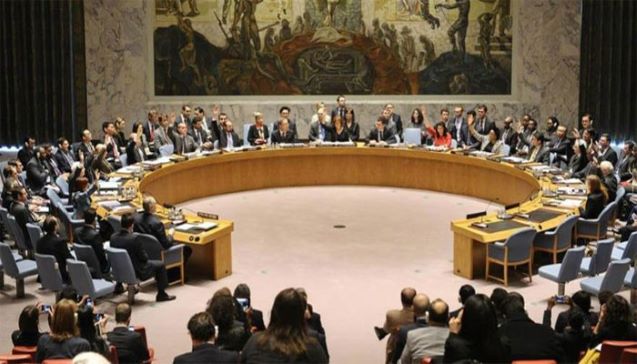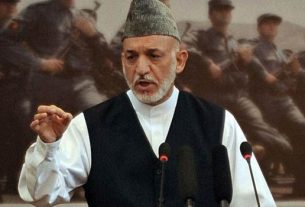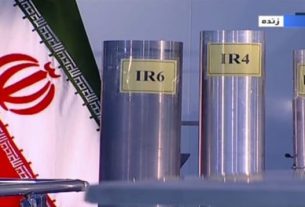ISLAMABAD — The United Nations Security Council is set to vote Thursday to demand Afghanistan’s Taliban leadership swiftly reverse their restrictions on women’s access to education and work and to condemn a recent ban on U.N. local female staff.
The draft resolution, seen by VOA, expresses “deep concern at the increasing erosion of respect for the human rights and fundamental freedoms of women and girls in Afghanistan by the Taliban.”
The United Arab Emirates and Japan jointly drafted the resolution, with diplomats expecting it to be adopted by the 15-member council.
The resolution being put to the vote would describe the ban on female Afghan staff as “unprecedented” in the history of the United Nations, saying it “undermines human rights and humanitarian principles.” It would reaffirm “the indispensable role of women in Afghan society.”
The ban on female U.N. staff and women working for nongovernmental organizations in Afghanistan “will negatively and severely impact” U.N. operations in the country, including the delivery of life-saving aid and basic services.
Thursday’s vote will come as U.N. Secretary-General Antonio Guterres plans to host a meeting behind closed doors of envoys on Afghanistan from countries around the world in Doha, Qatar May 1-2 to discuss what should be done in the wake of the intensifying Taliban crackdown on women.
The Taliban reclaimed power in August 2021 as the United States and NATO troops withdrew from the country after almost two decades of involvement in the Afghan war.
The reclusive chief of the fundamentalist Taliban authorities, Hibatullah Akhundzada, has since imposed his strict interpretation of Islamic law, or Sharia, to govern strife-torn Afghanistan. He has banned girls’ education beyond the sixth grade and barred most Afghan women from public life and work across the country.
Akhundzada last week again dismissed international calls for easing curbs on women’s freedom, saying he would not allow any external interference in his Islamic governance, come what may.
“It is the success and good fortune of the Afghan nation that Allah has blessed them with an Islamic Sharia system,” Akhundzada told worshippers in a mosque in the southern Afghan city of Kandahar on Friday.
“I have promised Allah that so long as I am alive, not a single law of infidelity will find a place in Afghanistan,” the reclusive Taliban chief said in his defiant speech that marked the start of the three-day annual Muslim festival of Eid al-Fitr.
Other countries have refused to recognize the Taliban as Afghanistan’s legitimate rulers, citing bans on women’s education and work, among other human rights concerns.
Earlier this month, U.N. Deputy Secretary-General Amina Mohammed, while sharing details of the planned Doha meeting, suggested recognition would also be on the agenda.
“We hope that we will find those baby steps to put us back on the pathway to recognition [of the Taliban], a principled recognition; in other words, there are conditions,” Mohammed told a seminar at Princeton University.
“Is it possible? I don’t know. That discussion has to happen. The Taliban clearly want recognition, and that’s the leverage we have,” she said.
The United States has said that any discussion of recognition of the Taliban at next week’s U.N.-hosted meeting in Doha “would be unacceptable” for Washington.
State Department spokesman Vedant Patel reiterated on Wednesday that the Taliban’s “human rights abuses towards women and girls…continues to be one of the key roadblocks to their self-proclaimed desire for international recognition.”
The draft resolution to be put forward on Thursday would also recognize and stress the need to address “the dire economic and humanitarian situation” facing Afghanistan, including through efforts to restore the country’s banking and financial systems.
The United States and other Western nations froze more than $9 billion in Afghan central bank foreign reserves after the Taliban takeover. Washington has since transferred a portion of the frozen reserves to a trust fund in Switzerland, strictly to be used for relief efforts.
Afghanistan is listed as one of the biggest humanitarian emergencies in the world, where U.N. estimates 6 million people are one step from faminelike conditions. The U.N. says more than 28 million Afghans, or two-thirds of the population, need assistance after years of war and natural calamities.__VOA News





